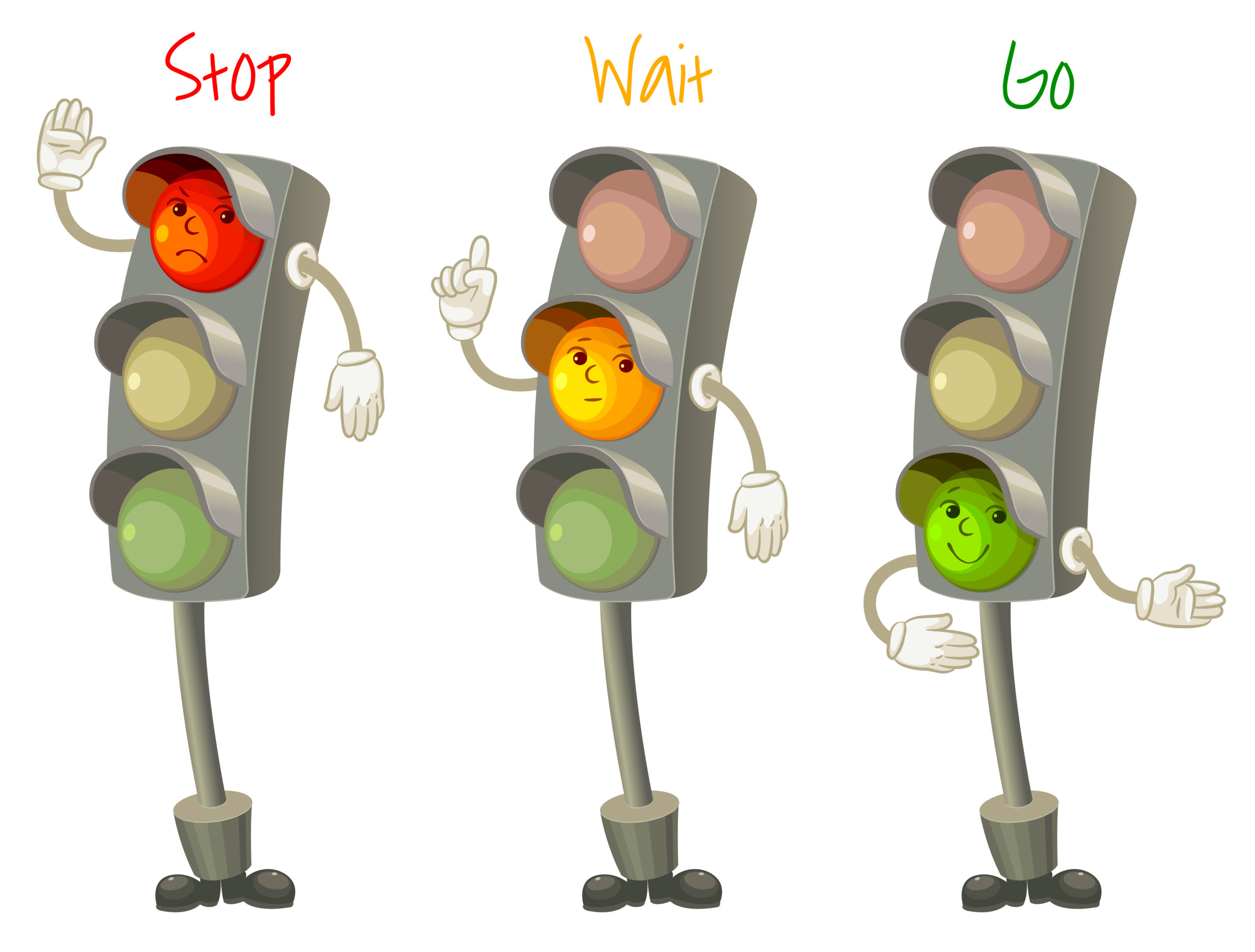By Prevention Specialist Lorrie van Voorthuijsen
One of the games I loved as a kid (and continued to play as a kindergarten teacher, parent, and grandparent) is “Red Light, Green Light”. Do you remember the game?
There is a starting line and a finish line about 12 feet apart. The person who is “IT” stands at the finish line with their back towards all the players standing on the starting line. “IT” shouts out “Green Light!” and all the players start to move toward “IT” as he/she counts 1 – 2 – 3. On the count of 3, “IT” shouts “Red Light!” and turns around to face the players, who “froze” in place when they heard the “Red Light!” called out. If “IT” catches anyone walking, running, falling off balance, or moving in any way, “IT” calls that player(s)’ name and they must return to the starting line. “IT” turns around again, and the game continues until one of the players reaches the finish line, tags “IT,” and becomes the new “IT.”
The fun in this game for the person who is “IT” is catching the players who have moved after “Red Light” was pronounced. And, because of the players’ disappointment when caught, that is the least fun part for the players. Too often, the play can turn into arguments, causing the game to end early.
When trying to help our children work through their problems with friends, school situations, and other relationships, sometimes we as parents play a form of Communication Red Light, Green Light. We want to help – after all, we love our children – but, frequently, in the way we go about that help, we are shouting out more “Red Lights” than “Green” ones.
When we see our children hurting, and we stop to sit down to help, the way we communicate at that time is so important. Oftentimes, instead of really listening to help, we do too much talking as we want to solve. We usually do this by using the following “Red Lights” or communication blockers:
- Commanding – “This is what you should do…”
- Distracting – “Oh, I’m sure you misunderstood; let’s forget all about that, and do this instead”
- Moralizing – “Well, you know we’ve already talked about what is right and wrong …”
- Advising – “Here’s what I think you should do…”
- Placating – “But, you’re so nice! I’m sure there are lots of other kids who can’t wait to go out with you…”
- Interrogating – “What happened next? What did you say then? And then what happened?”
The list does go on. Sometimes we get so busy “solving” the situation, we miss out on the real problem, and our children end the discussion game, still plagued by the problem.
Join us for Session Two of Active Parenting, “Winning Cooperation,” where we will discuss how to change those “Red Lights” into “Green Lights” and introduce other ways of building cooperation. Whether you are 6 or 66, you’re never too old for a GREAT game of “Red Light, Green Light” – where communication leads to cooperation and everyone is a winner!



